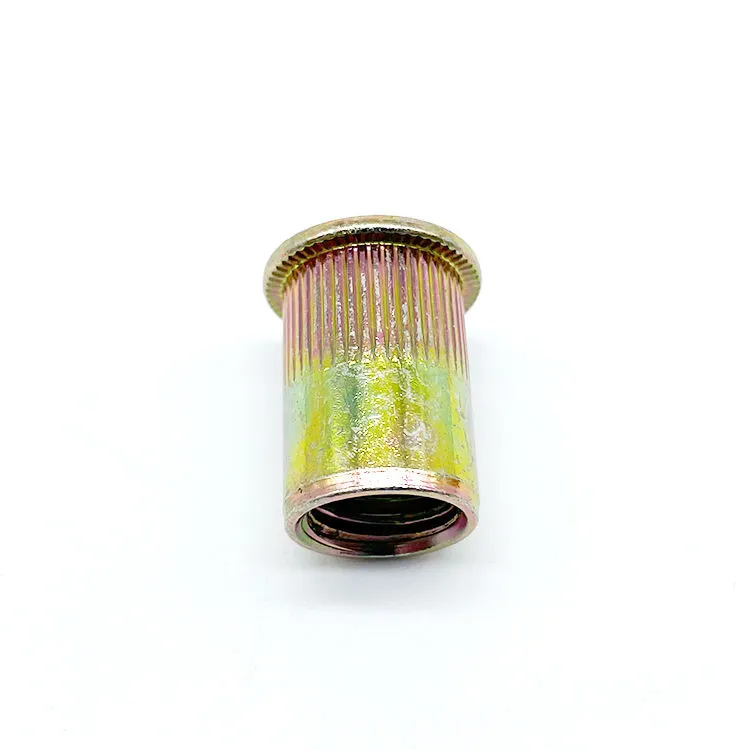

M16 Lock Washer Options and Applications for Reliable Fastening Solutions
Oct . 01, 2024 17:22 Back to list
M16 Lock Washer Options and Applications for Reliable Fastening Solutions
Understanding M16 Lock Washers Importance and Applications
Lock washers are essential components in various mechanical assemblies, providing a safeguard against loosening due to vibrations or dynamic loads. Among the variety of lock washers available, the M16 lock washer stands out for its specific applications in medium-sized bolts and nuts, particularly those used in automotive and industrial machinery. In this article, we will explore what M16 lock washers are, their types, their importance, and their applications.
What is an M16 Lock Washer?
The term M16 refers to the metric size of the fastener, which can handle a nominal diameter of 16 millimeters. Lock washers come in various designs, and the M16 lock washer can typically be found in the form of split washers, toothed washers, or flat lock washers. Each type has its unique characteristics and is designed for specific applications.
1. Split Lock Washers This type is perhaps the most common. It has a split that creates a spring-like action, which exerts pressure on the bolt and nut assembly, enhancing friction and preventing loosening.
2. Toothed Lock Washers These washers come with teeth that grip the surface of the bolt and the material it’s being affixed to. The design helps to maintain a secure grip, which is especially useful in environments where vibration is a concern.
3. Flat Lock Washers These are simple flat washers that allow for even distribution of load across the fastening surface. While they do not inherently prevent loosening, they support the assembly structurally.
Why Are M16 Lock Washers Important?
Lock washers play a critical role in ensuring the security and integrity of mechanical assemblies. Here are some reasons why M16 lock washers are particularly important
- Vibration Resistance Many types of machinery and vehicles operate in conditions where vibrations are inevitable. M16 lock washers effectively help prevent fasteners from loosening over time influenced by these vibrations.
- Safety In industries such as automotive and aerospace, the reliability of fastened joints is paramount. An M16 lock washer can be the difference between a secure assembly and a potential failure, which could lead to accidents or equipment failure.
m16 lock washer

- Longevity of Assemblies By maintaining tension within the joint, M16 lock washers contribute to the longevity of the assembly. They mitigate the risk of wear and fatigue over time, ensuring that machinery remains operational for longer periods.
- Load Distribution In applications where heavy loads are involved, M16 lock washers help distribute the load evenly across the surface area, reducing the chance of deformation or failure.
Applications of M16 Lock Washers
M16 lock washers can be found in a myriad of applications, including but not limited to
- Automotive Engineering Used extensively in vehicles to secure components such as engines, suspensions, and chassis, where vibrations are constant and significant.
- Construction Equipment In heavy machinery such as excavators and bulldozers, M16 lock washers ensure that vital components remain intact under strenuous operational conditions.
- Manufacturing Many industrial machines utilize M16 lock washers to prevent fasteners from loosening during operation, ensuring consistency in manufacturing processes.
- Aerospace Industry In aircraft, the security of every component is crucial for safety. M16 lock washers are often employed to secure critical systems.
Conclusion
M16 lock washers are a crucial but often overlooked aspect of mechanical assemblies that deal with medium-sized fasteners. Their role in preventing loosening, ensuring safety, and supporting load distribution cannot be understated. In industries where reliability is key, understanding and properly utilizing M16 lock washers can make a significant difference in the performance and safety of equipment. Whether in automotive applications, construction, manufacturing, or aerospace, these small components are integral to the functioning of complex systems. Investing in quality lock washers is a wise choice for any professional working with mechanical assemblies.
Latest news
-
High-Strength Hot Dip Galvanized Bolts - LongZe | Corrosion Resistance, Custom Sizes
NewsAug.01,2025
-
Best Self Tapping Screws for Drywall - Fast & Secure Installation
NewsJul.31,2025
-
High-Strength Hot Dip Galvanized Bolts-Hebei Longze|Corrosion Resistance&Customization
NewsJul.31,2025
-
Hot Dip Galvanized Bolts-Hebei Longze Metal Products|Corrosion Resistance&High Strength
NewsJul.31,2025
-
Hot Dip Galvanized Bolts-About LongZe|High Strength, Corrosion Resistance
NewsJul.30,2025
-
High-Strength Hot Dip Galvanized Bolts - Hebei Longze | Corrosion Resistance, Customization
NewsJul.30,2025

